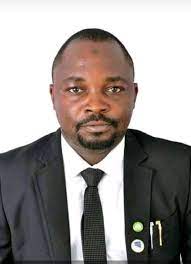Nigeria should have at least 300 radiotherapy machines (cancer treatment machines), as opposed to the less than 10 machines currently operational in the country, the Nigeria Cancer Society has said.
President of the Society, Dr Adamu Alhassan Umar stated this in Abuja during a news briefing to mark this year’s World Cancer Day.
The theme of this year’s commemoration is ‘Close the cancer care gap’
It was organized by the society in collaboration with the Mandate Health Empowerment Initiative (MHEI) and the Nigeria Medical Association (NMA) and other partners.
Quoting statistics from the World Health Organisation (WHO) , he said the inadequate number of cancer treatment equipment has created a big gap in cancer care for Nigerians.
He said, “The gap is further widened when we take into cognizance of the poverty level (above 40 percent), the percentage of rural dwellers (above 49 percent) coupled with the lack of comprehensive health coverage through the National Health Insurance Scheme (NHIS) and inadequate budgetary provision for health which is 5 percent of the consolidated budget as opposed to the agreed 15 percent by AU countries.”
He said the society and its partners have for several years campaigned against harmful social habits including the consumption of sugary and alcoholic beverages, adding that the society is very delighted that the Federal Government led by President Muhammadu Buhari recently introduced a N10 per litre excise duty on soft drinks.
Dr Umar said the aim is to reduce non-communicable diseases (NCDs) burden, investment in NCDs treatment and control, and additional revenue to other sectors with particular interest to the health sector.
“It is clear that even though the approved tax is way below our expectations, we remain optimistic that subsequent reviews will reflect an upward review of these taxes for the benefit of Nigerians in terms of health outcomes,” he added.
To sustain the momentum for change in Health care delivery services in Nigeria, the society urged government at all levels to ensure equitable distribution of health infrastructure especially at the primary health care level to intensify preventive and regular screening services.
It also called for timely national roll out of the HPV vaccination campaign towards elimination of elimination of cervical cancer.
While calling for prompt implementation and sustainability of the Cancer Health Fund that covers the three commonest cancers breast, cervical and prostate, the society called for increased budgetary allocation to the health sector in line with the 2001 Abuja declaration of allocating at least 15 percent of the annual budget to the health sector.
Ameh Zion Abba, Founder the Mandate Health Empowerment Initiative MHEI said about 8-24 percent of people with cancer are also living with depression.
He said cancer diagnosis and treatment could give rise to considerable mental health issues for individuals, such as anxiety and depression.
He said untreated mental health problems in cancer patients could lead to destructive consequences including decreased treatment adherence, decreased survival rate, increased healthcare cost, and poor quality of life.

 Join Daily Trust WhatsApp Community For Quick Access To News and Happenings Around You.
Join Daily Trust WhatsApp Community For Quick Access To News and Happenings Around You.


